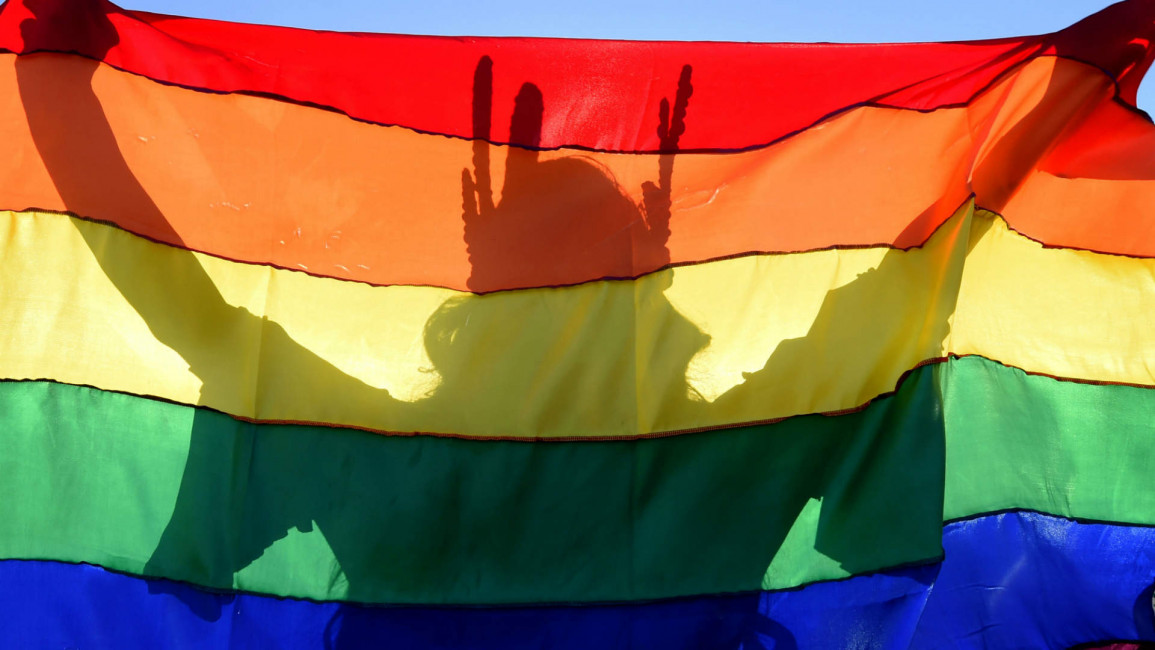Amman Pride event's cancellation stirs painful memories for LGBT Jordanians
A panel of LGBT activists, human rights workers and academics organised by the Columbia Global Center in Amman were due to convene online on Monday to discuss LGBT activism in the Middle East. The night before however, authorities in Amman declared that the event would not take place, under the justification that it “violated public morality.”
Employees of Columbia University told The New Arab that the event was to be rescheduled on the global platform, though they did not clarify if the centre in Amman would be participating.
The authorities’ sudden crackdown seemed to come as a response to the request of a member of Jordanian parliament affiliated with the Islamic reform (Islah) party, Ahmad Qatawanih. Qatawinih said he had called the Minister of Interior requesting that his intervention to protect society from “immoral activities outside of religion,” as well as to hold the “responsible parties” to account.
To some LGBT activists, the cancellation of the event seemed to be a rollback of the progress they had made in the last few years.
“I really thought we had moved forward; this is definitely a step backward,” one Jordanian LGBT activist who asked to remain anonymous for fear of retribution told The New Arab.
“In the past 4 years, things have been quiet. Nobody’s been targeting the community, not in media, not anywhere,” they said.
Other LGBT individuals who spoke with The New Arab were less surprised.
"We as homosexuals, must realise that changing laws concerning homosexuality in the Arab World is impossible, because as a citizen—let alone a gay citizen—I don’t have all my rights. So why would it be any different for homosexuals"
One 21-year old Jordanian man, who also asked to remain anonymous, said that he expected the event to be cancelled. LGBT events exist, but mostly underground, he explained, pointing to his time working in a gay bar in the country’s capital which used to regularly host “gay nights.”
Still, local media’s ready participation in what appeared to be a pile-on against LGBT individuals was frustrating to activists and painful to LGBT Jordanians.
Local media used the derogatory term Shath—which means “pervert” or “anomalous”—to describe LGBT individuals, rather than the literal translation of “homosexual” (mithli) which the local LGBT community has been trying to promote as the preferred term.
“We have worked very hard to move the new vocabulary into the country and other Arab countries—we’ve done workshops—and for them to be so unprofessional and still use the term shath… it’s just hatred,” the activist said.
They went on to describe that this round of media coverage and its specific rhetoric towards LGBT individuals was reminiscent of past media attempts to closely link homosexuals with immorality and prostitution.
Some Jordanian outlets took it a step further, however, they said. The activist recounted how undercover journalists used to come to their business, which was perceived as a safe space for LGBT individuals, and film videos or photograph those individuals for publication on their websites.
There are no laws barring homosexuality in Jordan, and homosexual acts between consenting adults have been decriminalised since the 1950’s. However, there are no protections in place against discrimination or crimes committed against individuals on the basis of their sexual orientation or gender identities.
Still, the Jordanian government has used vague “morality laws” to censor, arrest and target LGBT individuals on more than one occasion. Public officials, such as the current head of the Amman governorate, also quite explicitly associate LGBT individuals and activities with immorality and as a threat to Jordanian society.
Pro-LGBT events in the past have led to outrage from Jordanians. Even those events which have a loose connection to the LGBT community, such as the performance of Lebanese band Mashrou’ Leila which has gay members, have sparked controversy and action from authorities.
The resulting situation is one in which LGBT Jordanians have to tread carefully or else risk provoking the anger of the public. The public sphere, while not illegal for LGBT Jordanians, is oftentimes not an option for them.
After the suicide of Egyptian LGBT activist Sarah Hegazi, who was tortured by Egyptian authorities after raising a pride flag at a 2017 Mashrou’ Leila concert in Egypt, murals appeared in various parts of West Amman in her memory. After irate Twitter users pointed them out to the municipality, city employees were quick to paint them over.
There is little optimism that governments in the Arab World will begin protecting LGBT individuals soon, as Lina, a 29-year old LGBT from Amman, told The New Arab.
“We as homosexuals, must realise that changing laws concerning homosexuality in the Arab World is impossible, because as a citizen—let alone a gay citizen—I don’t have all my rights. So why would it be any different for homosexuals?”



